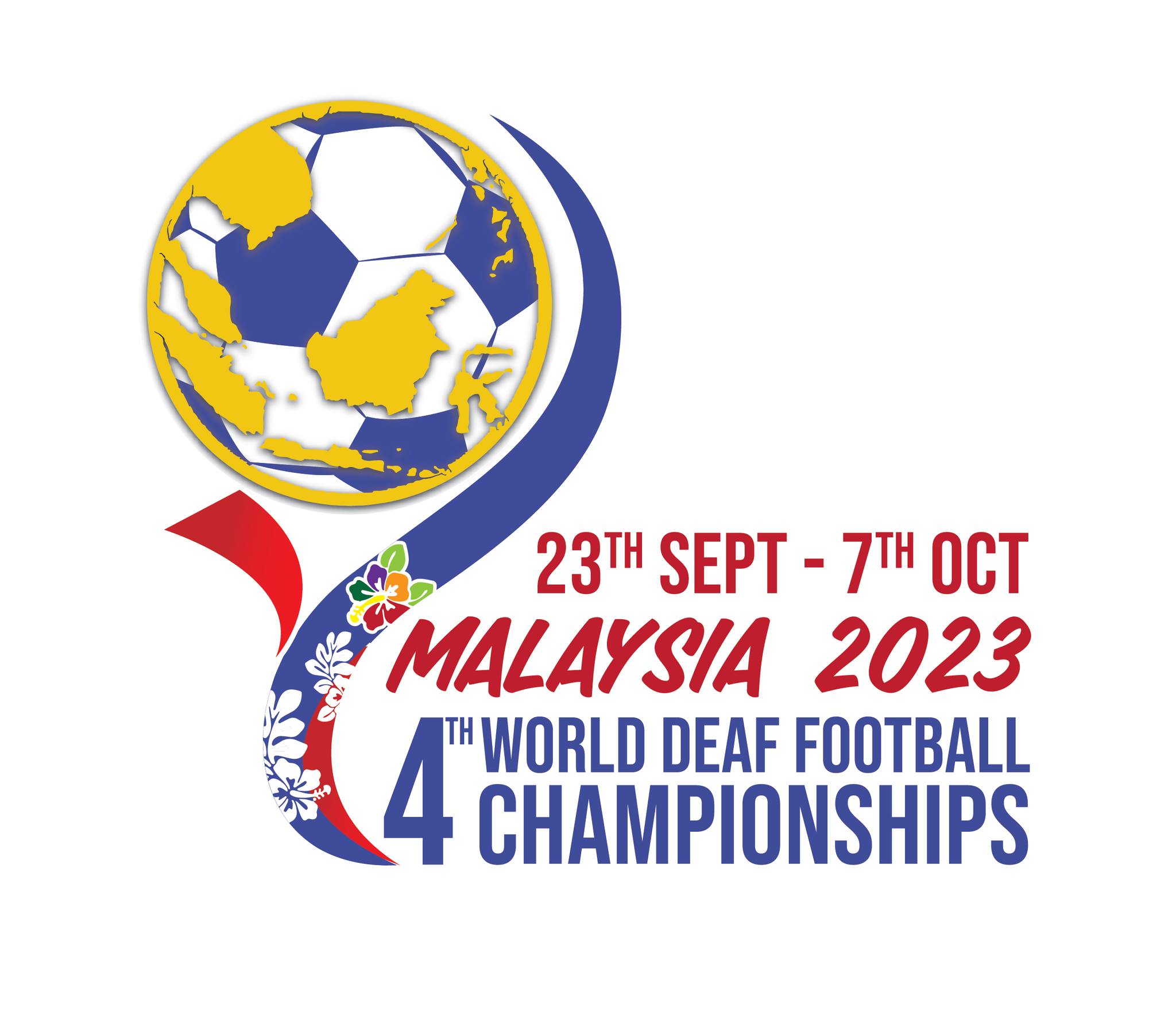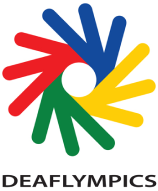
Brief history of the Deaflympics
The first deaf competitions in the world were held in 1924 in Paris. They were founded by the Frenchman Eugène Rubin-Alcay.
International Deaf Sports System
Since 1924, a separate system of deaf sports has been successfully operating in the world under the leadership of the International Committee of Sports for the Deaf (CISS).
The Deaflympics are held every four years in 25 summer and 7 winter sports according to the uniform rules of the relevant international sports federations (FIFA, FILA, FIBA), adopted for able-bodied athletes.
In 1957, the CISS was recognized by the International Olympic Committee (IOC) as an organization with Olympic status.
The deaf sports system was founded long before the creation of the Paralympic Movement in 1966 and exists outside the Paralympic Movement (sports for disabled people of other categories).
In 2001, the World Summer Games of the Deaf were renamed the Deaflympics, while retaining the numbering.
CISS includes national legally independent sports organizations of the deaf from 85 countries of the world, united in 4 regional confederations (European (EDSO), Pan-American, African and Asia-Pacific), as well as federations by sports.
Competitions in each sport are held according to the rules of the relevant international sports federations (FIFA, FILA, FIBA), adopted for able-bodied athletes. This is how they differ from the Paralympic Games, which are held according to special rules developed for certain categories of disabled people.
Every four years, under the leadership of the CISS, world championships are held, and under the leadership of the European Sports Organization for the Deaf (EDSO), European championships are held.
History of the World (Deaflympics) Games for the Deaf.
The development of sports for the disabled has a history of more than a century. As early as the 18th–19th centuries, it was established that physical activity is one of the main factors in the rehabilitation of the hearing impaired.
The first attempts to involve the deaf in sports were made in the 19th century, when the first sports club for the deaf was formed in Berlin in 1888. There was no rivalry, that is, a struggle for primacy. The experience of the Germans interested the disabled and the deaf in other countries.
In 1924, from August 10 to 17, the First World Games of the Deaf (Deaflympics competitions) were held in Paris.
Athletes representing the official national federations of Belgium, Great Britain, Holland, Poland, France and Czechoslovakia took part in them. Athletes from Italy, Romania and Hungary, which did not have such federations, came to the Games. The program of the Games included competitions in athletics, cycling, football, shooting and swimming.
The International Sports Committee of the Deaf (ICSD) was founded on August 16, 1924. It included federations uniting deaf athletes.
At the first congress of the ICSD, which took place in Brussels on October 31, 1926, the Statutes of this organization were adopted.
However, since 1924, the ICSD has held the Summer World Games of the Deaf every four years. Before World War II, Germany, Switzerland, Denmark, Norway, Finland, Sweden, Austria, the USA and Japan joined them. In the following years, not only the number of participants increased, but also the number of sports. The idea of holding competitions for the disabled was supported by the international community. The Games became an annual international sports festival, and since 1952 deaf athletes from different countries have regularly taken part in them. The lack of a necessary governing body to coordinate and determine the direction of development of deaf competitions led to the creation of the International Stoke Mandeville Federation, which established close links with the International Olympic Committee (IOC).
Deaflympics is a competition for the deaf.
The central body is the International Committee of Sports for the Deaf (France).
It is held every four years. Persons whose hearing is below 55 dB on the better ear are allowed to participate in the competition. The use of hearing aids is not allowed during the competition – in order to equalize the chances of athletes.
The program of competitions for athletes for the deaf and the rules for their conduct are identical to the usual ones. The peculiarity is that the actions of the referees must be visible. Given the type of disability, football referees, for example, do not blow a whistle, but wave flags. In track and field competitions, the signal is given to the starting pistol, and a bright light. A positive factor that simplifies the organization of competitions is the use by athletes of the international fingerprinting system, which allows them to communicate freely with each other without translators.
The Deaflympics Games have been held in the following cities: Amsterdam (1928), Nuremberg (1931), London (1935), Stockholm (1939), Copenhagen (1949), Brussels (1953), Milan (1957), Helsinki (1961), Washington (1965), Belgrade (1969), Malmö (1973), Bucharest (1977), Cologne (1981), Los Angeles (1985), Christchurch (1989), Sofia (1993), Copenhagen (1997), Rome (2001), Melbourne (2005), Taipei (2009), Sofia (2013), Samsun (2017) Caxias do Sul (2022).
The programs of the Winter and Summer Deaflympics Games differ from the programs of the Olympic Games. In winter, competitions are held in 7 sports: snowboarding, alpine skiing, ice hockey, futsal, chess, curling and cross-country skiing. The summer part includes 25 disciplines: badminton and bowling, basketball (men) and track and field, Greco-Roman and freestyle wrestling, volleyball (men and women) and football (men and women), table tennis and swimming, shooting and orienteering, handball and cycling, tennis, water polo, beach volleyball (men and women) and others.
Sports for the deaf are a struggle, self-affirmation of the individual, a way of social rehabilitation. They are engaged in the same sports, perform according to the same rules as ordinary athletes, but, at the same time, have impaired hearing, and achieve the same results as healthy people, and sometimes even better than them – there are hundreds of examples. Since deaf citizens work mainly in the sphere of material production and scientific activity, their health improvement increases the labor and intellectual potential of society, which predetermines the return on investment in physical education and sports work.
Attempt at unification
In the 80-90s, an attempt was made to unify the Deaflympics with the Paralympic movement. But this undertaking encountered a number of organizational issues related to the peculiarities of communication with athletes, the need to accommodate a large number of sign language interpreters, etc. It was necessary to understand what the Deaflympics are and what difficulties could arise in the process of organizing them together with the Paralympic movement. For this reason, the ICSD left the International Paralympic Committee in 1995, but retained the recognition of the IOC and its independence along with other Olympic organizations.
However, the number of participants in the Deaflympics is steadily growing from competition to competition. And the event is gaining popularity among fans of sports and sporting events.
World Deaf Games – Deaflympics – 100 years
The Deaflympics are high-level sporting events for athletes with hearing impairments.
This year, the ICSD celebrates the 100th anniversary of sport, which will take place in Paris from 3 to 5 October 2024. The most significant event organized by the ICSD is the worldwide celebration of the 100th anniversary of sport.
I am sure that the museum space around the Deaflympic Games movement has become a large-scale retrospective of the achievements of famous athletes over the past 100 years in Paris. This figure has become a real symbol of the event and in the activities of the museum.


Posters – 100th Anniversary of the Summer and Winter Deaflympics (World Deaf Games): Celebrating and Flourishing Deaf Sports with an Eye on the Future.
Poster – The Official Poster was designed to play an important role in promoting all Summer and Winter Deaflympics.
The premier congress and museum of deaf sports, will be held in Paris, France in October 2024.






